Want to include more diverse voices in your ELA classroom, without sacrificing rigor & standards? My “Rethinking the Classics” series was made for you!
Do you feel stuck teaching the “dead white guys” and feel you don’t have a way out? You CAN make your curriculum more inclusive, even if your district mandates the reading lists or your budget confines you to teaching certain texts.
I’ve been working with Dr. Sheila Frye (from Teaching Literacy) on a project called “Rethinking the Classics” to help teachers find supplemental texts and curriculum updates. For each title, we identified potential Essential Questions and literary devices that you may want to explore with students. Then, for each of these, we researched supplemental texts and discussion techniques you could include to make your curriculum more diverse.
For each “classic,” we identify over 30 short stories, songs, articles, speeches, poems, and more that you could integrate into your lesson plans. These aren’t teaching units, but a curated list from which you could choose a handful to include.
Teaching the Classics: An Inclusive Approach
The Odyssey
Here’s my blog post on digital resources for teaching The Odyssey.
Essential Questions:
—EQ: What is a hero?
—Theme: Xenia & Hospitality
—EQ: What do stories teach us about culture?
Literary Devices:
—Characterization
—Imagery
—Similes/Odes
Check out the full Rethinking the Classics: The Odyssey resource for more ideas.
Shakespeare
Read this post for ways to enrich your teaching of any Shakespeare play.
Background Information:
—Critical Background for Educators
—Shakespeare’s Life & Times
—Shakespeare’s Language
Essential Questions:
—What role does family play in one’s identity?
—What is the continued relevance of Shakespeare?
Themes:
—Free Will vs. Fate/Destiny
—Appearance vs. Reality
—Deception and Betrayal
—Gender Roles
—Class Structure
Check out the full Shakespeare – For Any Play resource in my shop!
Romeo & Juliet
Read this post for a peek inside the resource 🙂
Essential Questions:
—What role does family play in one’s identity?
—What is the continued relevance of Shakespeare?
—To what extent is Romeo & Juliet a critique of romantic love?
Themes:
—Free Will vs. Fate/Destiny
Literary Devices/Techniques:
—Characterization
—Tension & Suspense
—Irony
Want more? Check out the full Romeo & Juliet resource.
The Giver
In this post I share some supplemental ideas for The Giver, all optimized for virtual or classroom-based learning.
Essential Questions:
—What is a utopia?
—How can societal rules help or harm us?
—How do personal choices impact a society?
Themes:
—Individualism & Collectivism
—Memory & Wisdom
—Loneliness & Grief
Literary Devices/Techniques:
—Writing Personal Narratives
— Symbolism
—Irony
—Point of View
Find even more tips inside the full Rethinking the Classics: The Giver resource.
The Outsiders
Read this post for a preview of the full resource.
Essential Questions:
—How are different social classes treated by society?
—What are the implications of stereotyping others?
Themes:
—Peer Pressure vs. Independent Thought
—Hero Worship and the “Southern Gentleman” trope
—Responding to Violence with Violence
Literary Devices/Techniques:
—Types of Conflict
—Characterization
—Gold as a metaphor
—Alliteration
Dr. Frye and I expand on these topics in the full The Outsiders resource.
The Great Gatsby
Check out these 4 ideas to include in your class reading of The Great Gatsby, all optimized for digital or -classroom based learning.
Essential Questions:
—What is the historical context for The Great Gatsby?
—Is the American Dream still relevant?
Themes:
—The American Dream
—Individualism and Collectivism
—Nostalgia
Literary Devices/Techniques:
—Imagery
—Symbolism: Gatsby’s Mansion
—Symbolism: The Green Light
Find all our other ideas inside The Great Gatsby resource.
To Kill a Mockingbird
My thoughts on teaching – or not teaching – To Kill a Mockingbird
Essential Questions:
—How do people develop compassion and understanding?
—How can we use our privilege to help others?
Themes:
—The Ideals of Justice vs. the American System
—Integrity
—Understanding Systemic Racism
Literary Devices/Techniques:
— Symbolism
—Irony
Check out the full Rethinking the Classics: TKAM resource for more.
Rethinking other texts
Final thoughts:
I hope this post gave you some tools and ideas for “Rethinking the Classics” with your students! Using supplemental materials like these not only make you unit more inclusive, they also make it more engaging and relevant to your students. What classic text are you most excited to “Rethink”?
Do you need supplemental ideas for a novel or play that Dr. Frye and I haven’t covered yet? Comment below or reach out to me on IG @nouvelle.ela 🙂
Happy teaching!

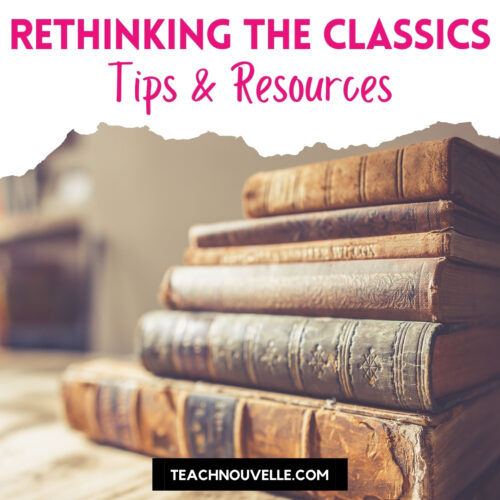
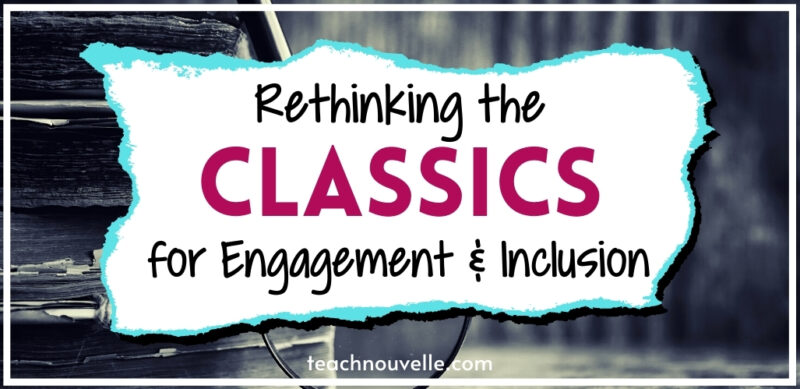
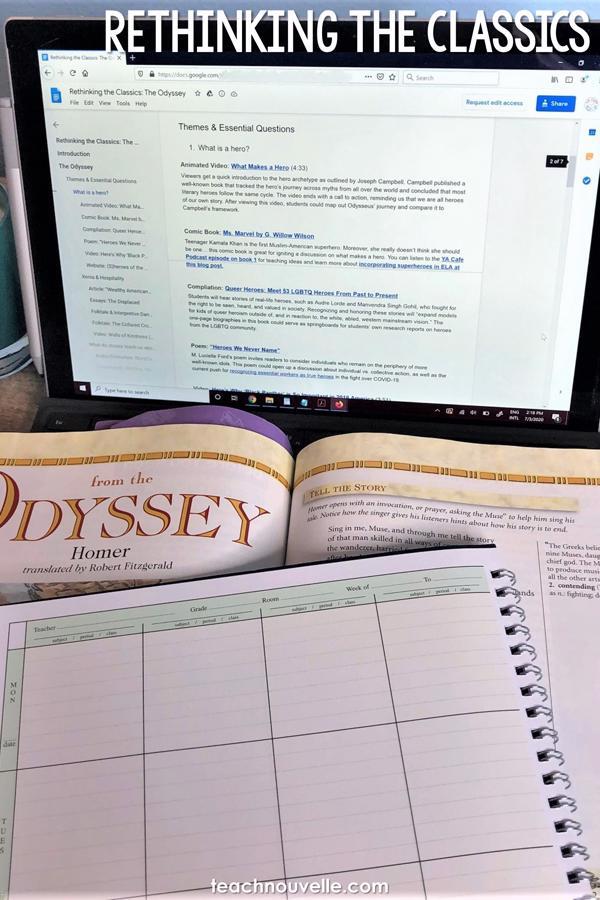
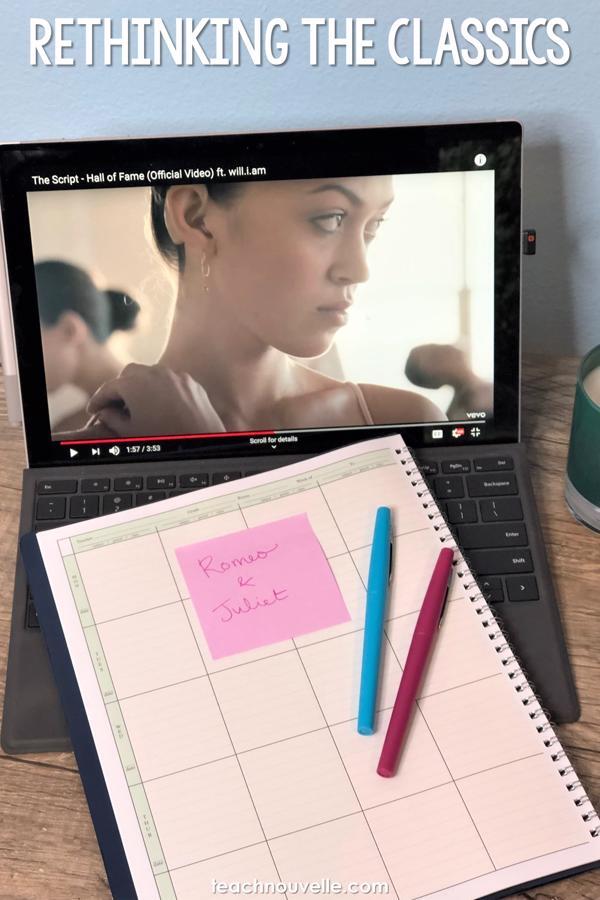
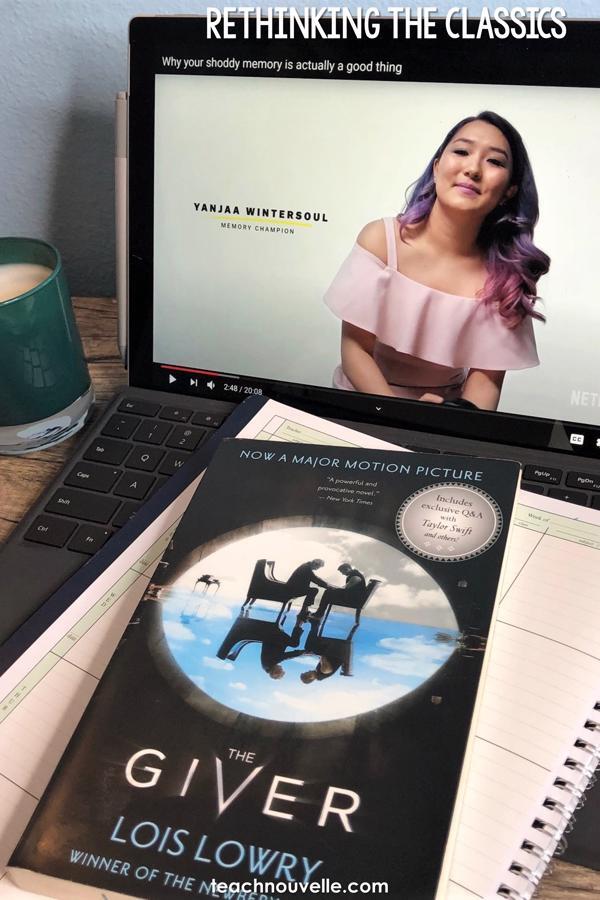
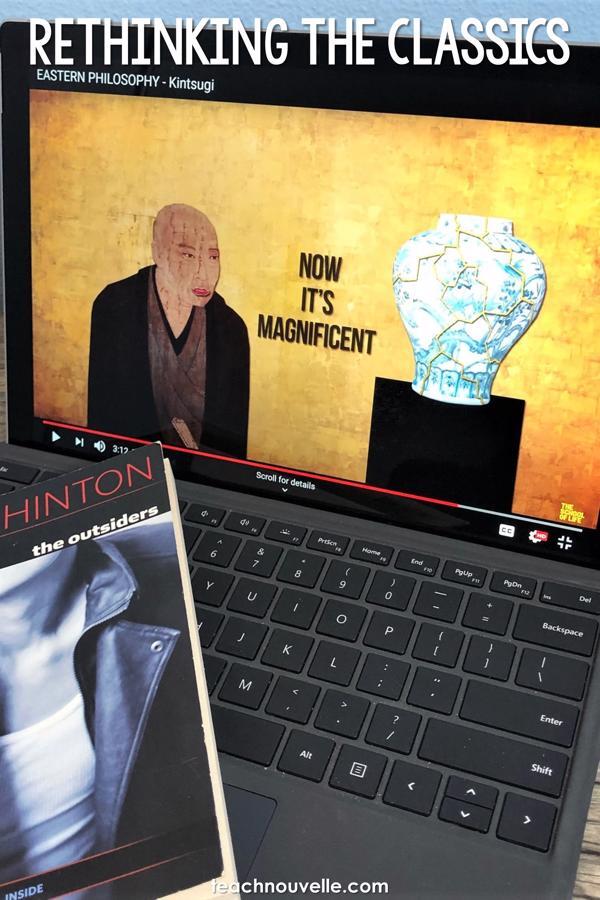
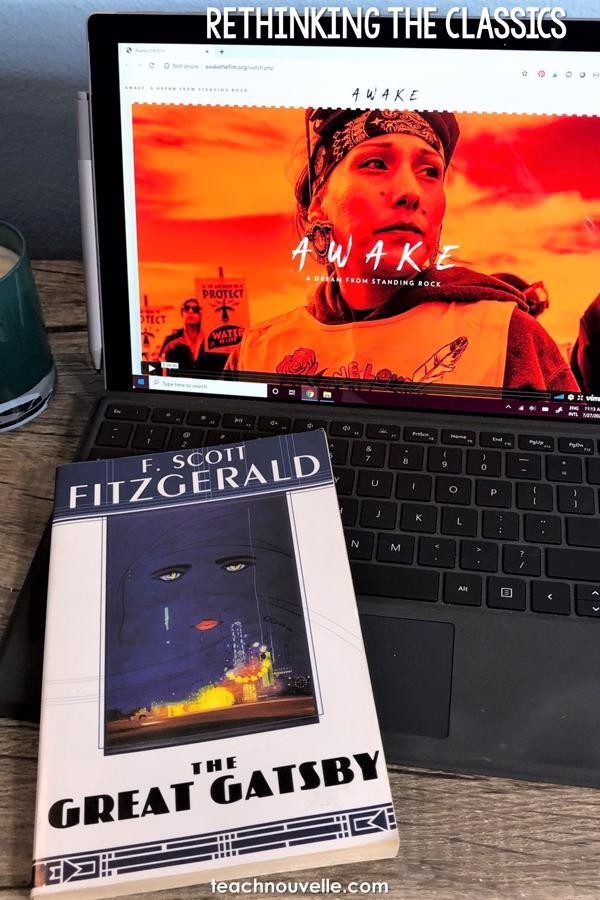

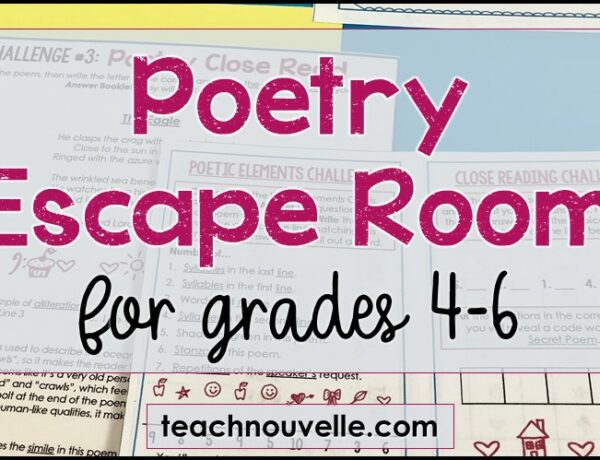
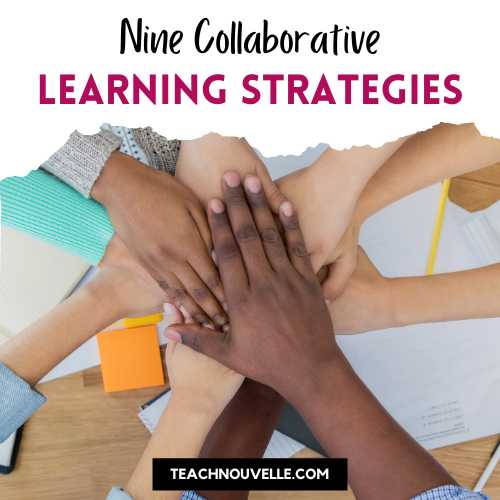
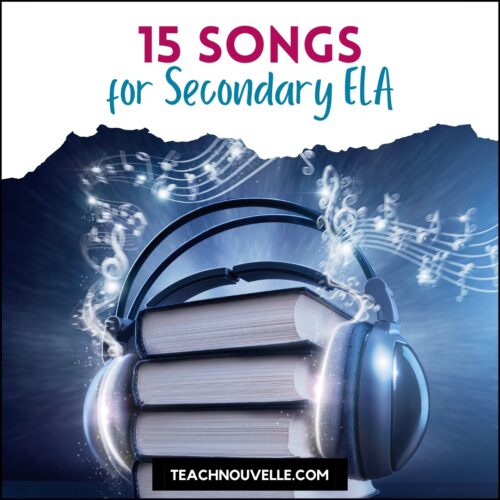
1 Comment
Kacey York
July 21, 2021 at 11:44 amI am currently in the process of attempting to do this with classic novels for my 6th graders. I would love any feedback or help for the following books:
The Secret Garden
The Westing Game
Alice in Wonderland
The Wonderful Wizard of Oz
The Jungle Book
Treasure Island
Where the Red Fern Grows
Hatchet